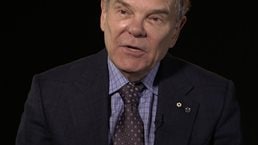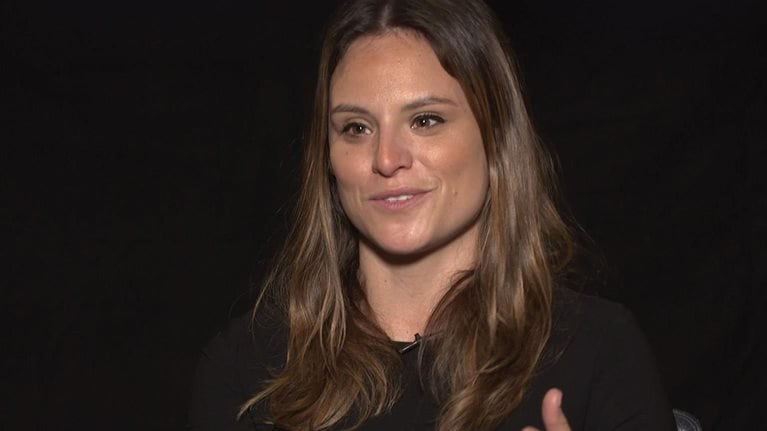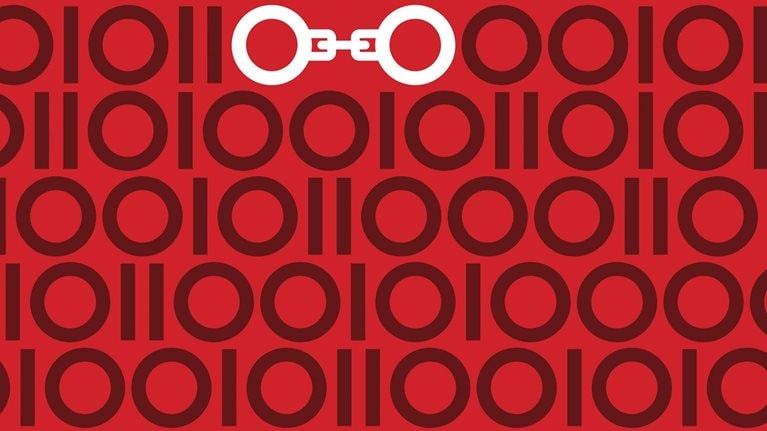Backed by sophisticated technology, blockchain can potentially disrupt every institution in some way. In this interview with McKinsey’s Rik Kirkland, Don Tapscott, coauthor of Blockchain Revolution (Portfolio, 2016) and cofounder of the Blockchain Research Institute, posits, “What if there were an ‘Internet of value,’ some kind of global distributed ledger or database where anything of value, from money to music to votes, could be managed, transacted, and exchanged in a private and secure way?” An edited version of his remarks follows.
Interview transcript
Blockchain as the ‘Internet of value’
I think that blockchain is nothing less than the second generation of the Internet. It will change every institution, in some ways more so than the first generation did. The basic idea is that for the last 40 years we’ve had the Internet of information, and that’s been a medium for publishing information.
But when it comes to assets, things that really matter in the economy—money, stocks, bonds, intellectual property, votes, art, music, loyalty points, identities, and so on—sending a copy is a terrible idea. If I send you $100, it’s really important I still don’t have the money.
This has been called the double-spend problem by cryptographers for a long time. This is managed by big institutions: banks, governments, credit-card companies, and social-media companies. They perform all of the business and transaction logic of every kind of commerce. They clear and settle transactions. They identify parties, and they keep records.
But overall, there are growing problems with these intermediaries; 2008 was evidence of that, where they almost brought down the global capitalist system. What if there were not just an Internet of information? What if there were an Internet of value, some kind of global distributed ledger or database where anything of value, from money to music to votes, could be managed, transacted, and exchanged in a private and secure way?
What if there were a native digital medium for value? Well, that’s essentially what blockchain is. So people shouldn’t be confused by the cryptocurrencies on various blockchains, like Bitcoin. The real pony here is the underlying technology.
Thinking strategically about blockchain
If you’re the CEO of a big company, the first thing is to conceptualize this right. This is not like another technology, like AI [artificial intelligence], the cloud, robots, drones, the Internet of Things, and all of the rest of the stuff that are part of this fourth industrial revolution.
Stay current on your favorite topics
This is the transactional platform that will enable all of those things to be part of the economy. When we have autonomous vehicles moving around, all of those transactions, everything from how they power themselves to how people pay for them, will be done through a distributed ledger. The Internet of everything needs a ledger of everything for it to work.
If you’re a CEO, you also need to get pilot projects going. Most of the big banks are doing this, but this is true in every industry. You also need to get yourself informed. There are all kinds of big ways—consortia and partnerships where you can get plugged in.
The final thing I would say is you need to start to build up some elite talent. It doesn’t necessarily need to be inside your organization. You can partner with others.
There’s always been this view, in terms of technology innovation—going back over the successive waves of technology—that you shouldn’t be a leader. You should be a fast follower and let the leaders go out and get burned.
But I think this might be different in one sense—that by being a leader you change the game. Amazon was a great example of that. They were ridiculed when they were first launched, everyone made so much fun of them, and their market cap was ridiculous, and all the rest.
But Amazon is well positioned to own a whole bunch of the economy. The other thing is, by taking initiatives, you change your own culture, and you become a more responsive organization that’s capable of innovating better. That doesn’t mean, that if you’re a bank, you should throw out your existing transactional systems and leap onto some whole new untested platform without proper experimentation, just like you shouldn’t get rid of your supply chain overnight.
But in every case, every industry, there are examples of individuals and companies that are providing leadership that are changing the game.
This is about thinking strategically. Where are you going to play? How are you going to win? How do you have competitive differentiation? How do you create value for customers? The big questions of strategy are coming to the fore here, too. It’s an interesting time for everybody in the C-suite.
Changing the architecture of the corporation
In the book, Alex and I hypothesized about how far this could go. We developed this idea that you could have a company that would be a bunch of smart contracts and autonomous agents on a blockchain. And that this company would have no people—it wouldn’t need a CEO or management or people.

How blockchains could change the world
We struggled with, “Should we publish this? It’s so sci-fi.” We published it. The week after the book came out, an organization called the Decentralized Autonomous Organization was created, that had no management, no CEO, no people. It was just a bunch of smart contracts on a blockchain and some application programming.
Its goal was to fund start-ups in this space. Its first job was to go raise some money. This entity went out and raised $163 million in three weeks, the biggest crowdfunding campaign ever held—by an order of magnitude. And it went about its business. The story is not totally a happy ending, because there was a flaw in the programming of one of the smart contracts.
In the end, they decided to give all the money back to the shareholders. But the fact that that thing could exist, I mean Bob Dylan, “There’s somethin’ goin’ on here, and you don’t know what it is.” This is deep, deep changes to the architecture of the corporation.


